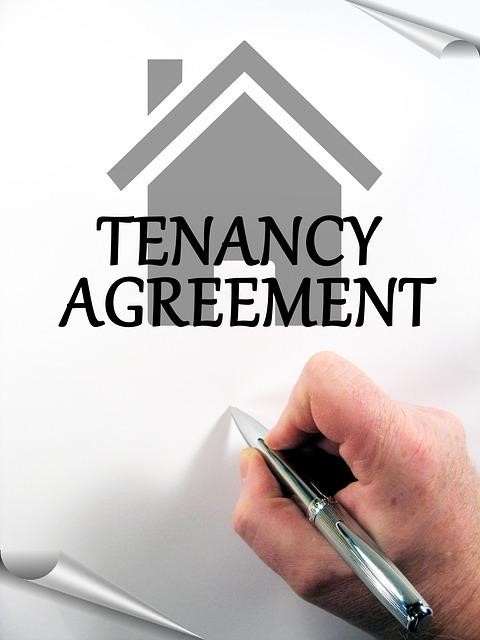Rental property is a sound long-term investment with guaranteed regular income. According to one industry report, the average annual return on investment for residential properties is 10.6%.
However, rental properties require regular maintenance and repairs to preserve or appreciate their market value. Scheming on short-term residential property repair and maintenance can cost you a fortune in the long term, including regulatory body fines and tenant-related civil lawsuits.
Essentially, rental property maintenance is a mutual responsibility between the property owner/landlord and the tenant. However, which party is responsible for specific maintenance duties? Keep reading to gain clarity on the matter.
What Does Property Maintenance And Repair Entail?
Property maintenance encompasses the routine tasks carried out on a rental building to keep the building habitable, safe, and up to code. On the other hand, property repair refers to reactive tasks intended to curb accelerated damage and hazards likely to cause injury and property damage in a building.
According to one government report, all 50 US states adhere to the International Building Code (IBC) for minimum building design, structure, plumbing, electricity, accessibility, and energy requirements. However, states, counties, and cities can adjust the IBC building code accordingly.
For instance, rental companies in Nashville TN, possibly have different rules from those in Memphis, TN. Therefore, staying up to date with building codes governing the jurisdiction of a property’s location is vital for property owners.
As stated above, different parties play different roles in the rental property’s maintenance. The key is to draw a legally enforceable lease highlighting each party’s responsibilities. Although leases vary, below are the typical maintenance and repair obligations that landlords have toward their tenants.

Image Source: Unsplash.com
Property Owner Rental Property Maintenance And Repair Obligations
Although state laws on residential properties vary, most states uphold a legal doctrine called the implied warranty of habitability. The principle is among the fundamental renter’s rights and is an implicit guarantee that a residential rental property complies with the basic living and safety standards.
Therefore, landlords must ensure that the residential rental space is fit for occupation at the beginning of the lease and throughout the tenant’s occupancy. Below are the rental property maintenance and repairs covered under the implied warranty of habitability.
Keep Mechanical Systems In Good Condition
The mechanical systems highlighted in most state building codes include electrical wiring, HVAC (heating, ventilation, and air conditioning) systems, plumbing, and elevators. To avoid potential safety hazards, every landlord must ensure such systems’ optimum placement and functioning.
Running Water
Besides up-to-code plumbing systems, the pipes must supply clean running water to meet the tenant’s water needs. Such needs include cleaning, cooking, flushing the toilet, and showering. Also, the building should have a working water heating system, especially in the showers.
Waste Receptacles
Some jurisdictions require that landlords provide non-recyclable and recyclable waste receptacles for multi-family rental properties. The number and volume capacities for these receptacles must correspond with the number of tenants in the building.
Exterior Maintenance
A landlord’s obligation to fulfill exterior maintenance on a residential rental property depends on the property type. For example, landlords owning multi-family residential complexes must maintain the exterior spaces around the building by raking leaves, mowing grass, and shoveling snow from driveways and walkways. However, most state laws allow landlords to let single-family residential properties pass exterior maintenance roles to the tenants.

Image Source: Unsplash.com
Seasonal Maintenance
Each year’s season brings environmental changes that affect a building’s habitability. For example, low winter temperatures can cause damage to water pipes, while the summer heat pushes pests to seek refuge inside houses. Therefore, a landlord should be proactive and create a season-specific maintenance schedule to keep tenants comfortable.
A landlord failing to meet the above maintenance requirements breaches the implied warranty of habitability. Some state laws allow tenants to breach the lease and move out without notice or withhold rent if the landlord breaches the implied warranty of habitability. Therefore, landlords must regularly inspect the building’s interior and exterior to stay on top of maintenance requirements.
Tenant Rental Property Maintenance Requirements
Tenants must fulfill the following maintenance requirements to keep their rental properties habitable.
- They must maintain sanitary conditions by removing garbage from the building and keeping their rental spaces clean.
- They must use appliances responsibly to avoid damage and create safety hazards.
- They must conduct simple maintenance duties like changing bulbs, smoke detector batteries, and air filter covers.
- They must store their property away from public spaces and clear emergency exits.
- They must put fixtures to correct use, e.g., avoid clogging toilets with non-flushable garbage or clogging garbage disposals.
- They must report sudden events like water leaks that could make the building inhabitable.

Image Source: Unsplash.com
Property Managers’ Role In Rental Property Maintenance and Repairs
Landlords have the lion’s share of responsibilities in residential rental property maintenance. However, the duties can be overwhelming for the landlord to perform individually; hence most landlords hire property managers.
Property managers conduct regular building inspections, take tenant reports on potential safety hazards, and have the resources to hire specialized repair people to ensure the building stays up to code.
Conclusion:
Rental property maintenance and repair is the landlord’s, the tenants, and in some cases, the property manager’s responsibility. It is in the interest of both parties to keep the rental property safe, sanitary, and habitable. However, each party should have categorically stated roles stipulated on the lease to avoid confusion and breach of contract
